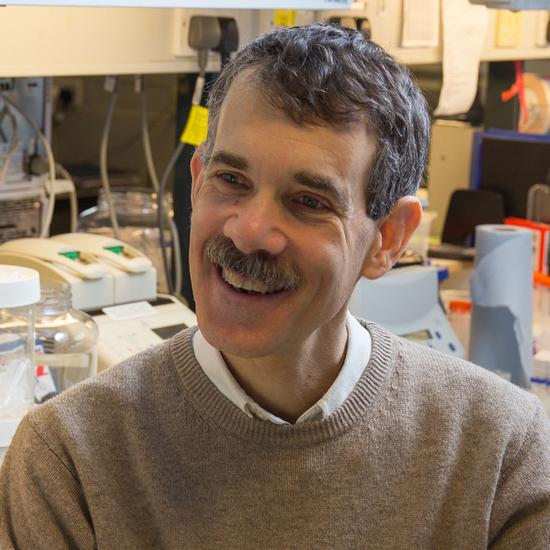David Ron’s research investigates the ways in which the cells of complex organisms cope with the effects of incorrectly folded proteins. Such proteins represent a wasted effort for cells and their build-up leads to proteotoxicity, which damages cells over extended periods of time. David aims to understand the clinical impact of this stress in diseases such as Alzheimer’s and type 2 diabetes.
Newly formed proteins fold into their three-dimensional shape in an organelle known as the endoplasmic reticulum, which has a limited capacity for folding proteins. David was able to reveal the molecular mechanism that cells use to match their rate of protein production with their capacity for folding — part of the so-called unfolded protein response.
David employs biochemical and genetic methods to study the unfolded protein response through the Caenorhabditis elegans worm and other model animals such as mice. His ongoing research may lead to treatments for neurodegenerative diseases — often the result of misfolded proteins — based on manipulating this response in the cell.
Subject groups
-
Molecules of Life
Biochemistry and molecular biology, Cell biology (incl molecular cell biology)
-
Multicellular Organisms
Physiology incl biophysics of cells (non-clinical)
-
Health and Human Sciences
Molecular medicine

